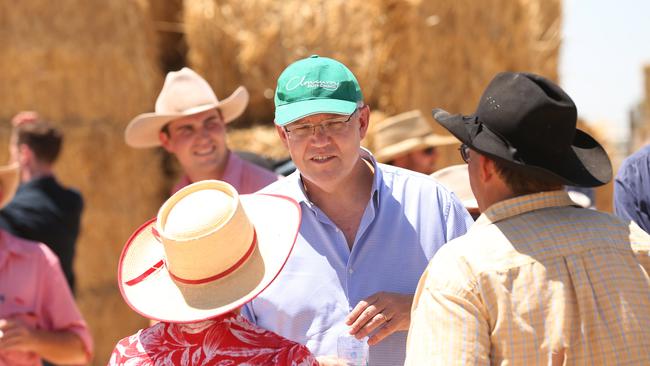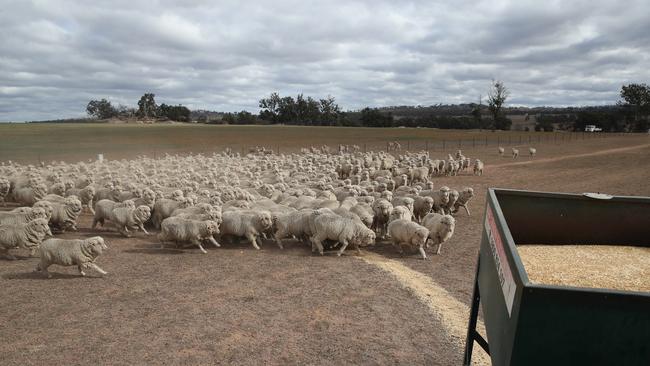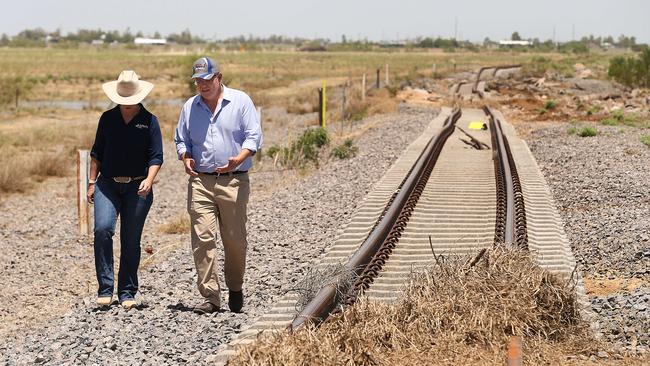Scott Morrison: Our future depends on contact between cities and bush
While many urban Australians have little direct contact with rural communities, it is important that we work to maintain contact between our cities and the bush and understand that our future is shared, writes Scott Morrison.
Today is once again about bringing Australians together. It would be a great mistake to think from the relative economic shelter of the suburbs of Sydney, Melbourne or southeast Queensland that we are immune from the challenges faced in rural and regional Australia. This is a dangerous and false sense of security.
The fact that The Daily Telegraph, Sydney’s leading daily newspaper, is bringing a Summit together in Dubbo, says that they understand that the future of regional and rural Australia is also about the future of all Australians, regardless of where they live.
Australia’s economic and environmental future has always been and will always be dependent on the success of rural and regional Australia.
Our Government’s plan for Australia’s future is based on and is invested in this important principle.

The bush has a wonderful place in the soul of every Australian, whether we have a direct personal connection or not. For many in our cities, you only have to go back a few generations in your family history to find someone who picked up from the bush and moved to the city.
While many urban Australians have little direct contact with rural communities, it is important that we work to maintain contact between our cities and the bush and understand that our future is shared.
I want us to grow together and not grow apart. I want Australians in regional areas to know that their efforts, struggles and values are respected by all Australians.
More recently I have become very concerned about the disconnection between the city and the bush.
The recent spate of highly organised farm invasions is disgraceful. As a government we are taking strong legislative action as promised.
We have introduced the new laws to criminalise the actions of these cowardly keyboard warriors inciting these crimes. I want the parliament to pass them within the fortnight. These Australians should not have to worry about whether the parliament is on their side.
But these extreme actions betray a much more concerning trend.
In recent research conducted by the Australian Council for Educational Research, 40 per cent of Grade 10 students believed farming damaged the environment, up from 17 per cent for Grade 6 students.
Any wonder that we now have activists storming farms.
Meanwhile, 75 per cent of Grade 6 students believed cotton socks came from an animal and 45 per cent believed bananas, bread and cheese didn’t come from farming.
We have to bridge this divide and connect Australians once again with what’s happening in our rural and regional communities and ensure there is an appropriate balance in what our kids are being taught about the environment.

Our farmers are Australia’s best environmentalists. They have to be. Their livelihood depends on it. We need to teach this to our children in our schools.
This is why we have committed $10 million to reconnect urban kids with our farms and rural Australia, through a program of supporting farm visits by students and to bring the ifarm initiative that teaches schoolchildren about what happens on farms and how things grow. This will begin in 2020.
These are practical initiatives that are simply to ensure that in future we can bring our rural, regional and city communities closer together.
Because what happens to rural and regional Australia is vital to all Australians. It is inescapable that the here and now for so many in rural Australia is drought.
A drought measured in years, taking its toll and wearing away even the strongest souls and communities.
A drought that in just the past 12 months has seen farm GDP decline by almost 7 per cent.
My first act as Prime Minister was to visit Quilpie in western Queensland to see for myself what was happening on the ground.
This was followed up by our National Drought Summit and a co-ordinated national drought action plan. That plan was not just about relief. Because that is what you told us. Importantly, it was about longer term recovery and resilience to realise the opportunities ahead.
This has been one of the most impressive features of the response by Australians in rural and regional areas to the drought.
You are looking to the future, because you see a future, and so do we. We are looking up and out — not down.
Our drought response has not made it rain. But our efforts, in addition to those provided by state governments, like here in NSW, have been practical and substantial — with $7 billion in measures for drought relief and recovery announced and being implanted to date.
When talking about the future of rural and regional Australia we must be careful to not let the devastating drought mask the many achievements that are occurring in agriculture. Our farmers are among the best in the world.
Seventy five per cent of what our farmers produce is exported. Our farmers feed more than 40 million people.

According to ABARE the value of farm production is about $60 billion. That’s up by a half in a decade.
I know we can do better.
Like the National Farmers’ Federation, I believe we can hit $100 billion by 2030. And I am determined to see that we do.
That’s why Agriculture Minister Bridget McKenzie will draw together a national plan to enable Agriculture, Fisheries and Forestry to become a $100 billion industry by 2030.
One key aspect of economic resilience in regional areas is the presence of a diversified economy.
That means the encouragement and support of industries such as higher education, mining and tourism. Industries that will even out the cyclical aspects of agriculture.
And I will never allow those in our cities to tell those in our regions and in rural areas what industries they can work in, how they should live or how they should seek to protect their way of life into the future.
What is in the interests of rural and regional Australians is in the national interest.
That is why, leading up to the Deputy Prime Minister making a formal government policy statement on regional policy, I will be moving to establish a House of Representatives Select Committee to examine the future needs of rural and regional economies.
This will bring together the stories and experience of how regional economies are diversifying, how regional industries are finding their way, how regional communities are boosting their resilience and working together to secure their future.
Through our actions, the Government is backing in regional Australians and their communities who are standing up and having a go.
I congratulate The Daily Telegraph for bringing together this important summit.


